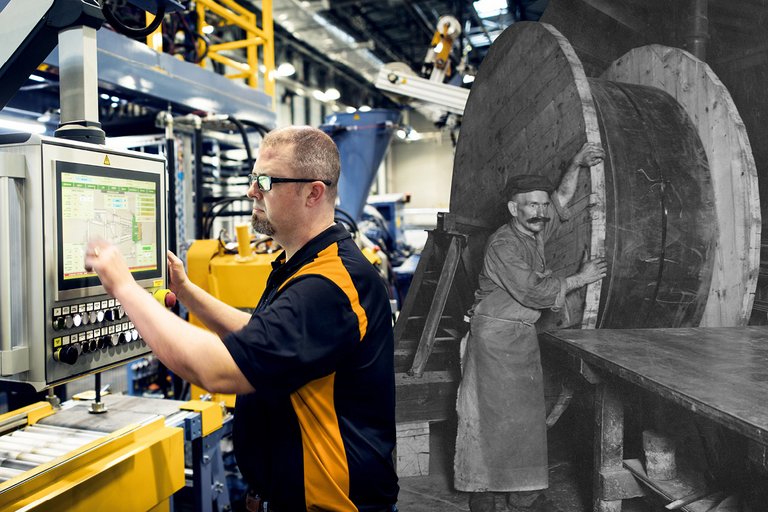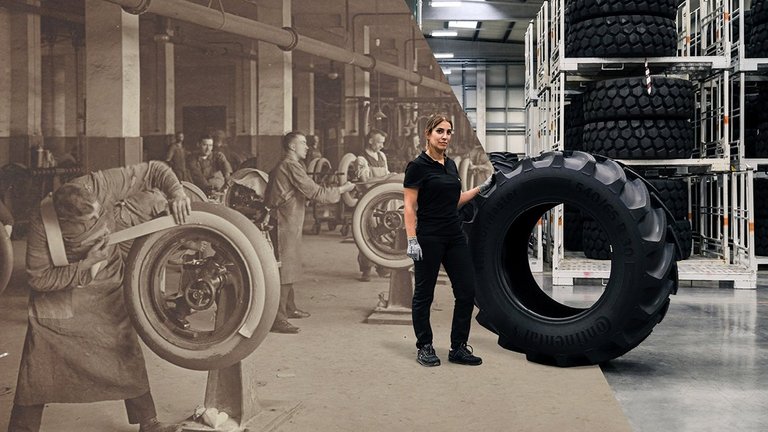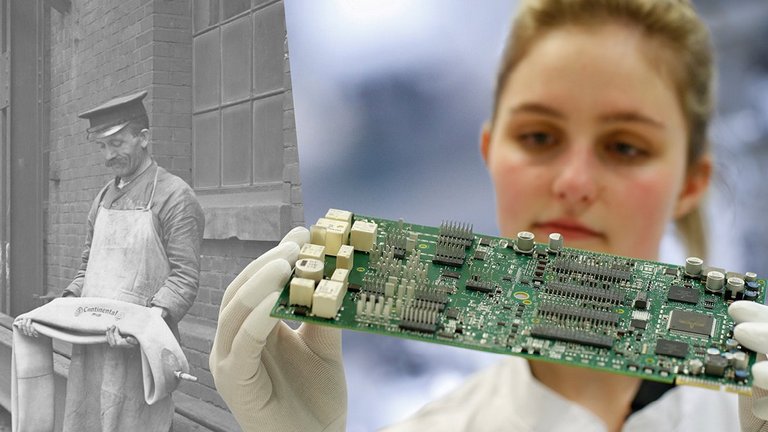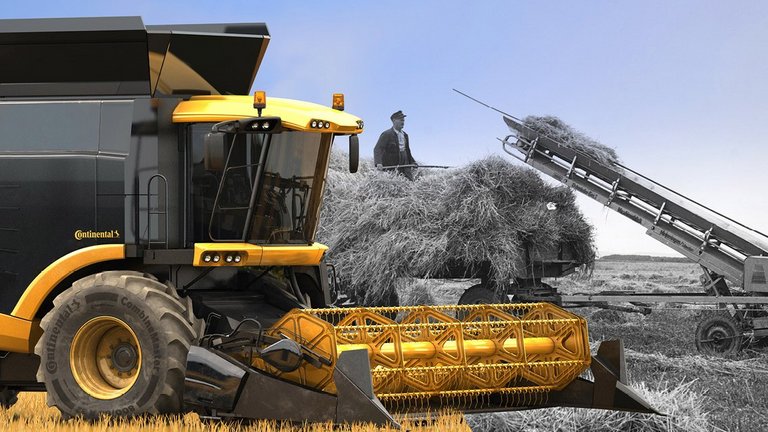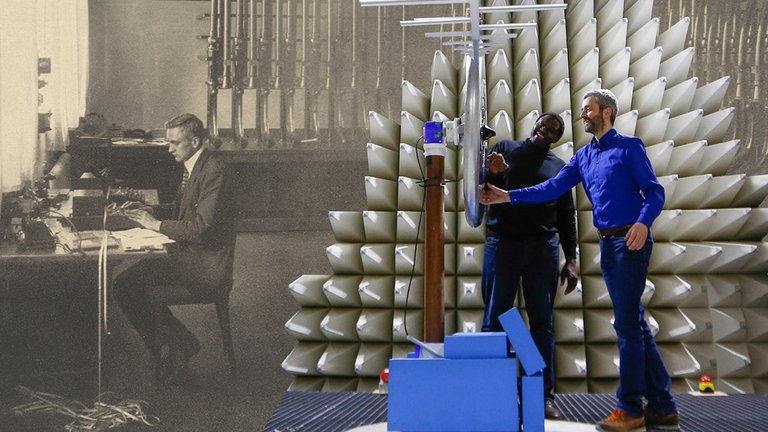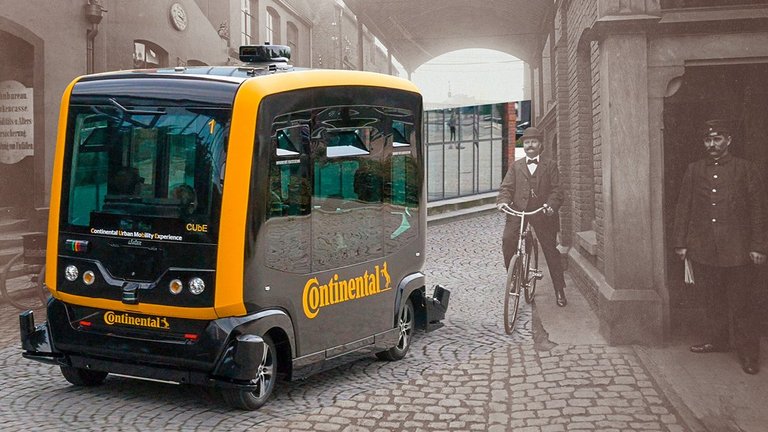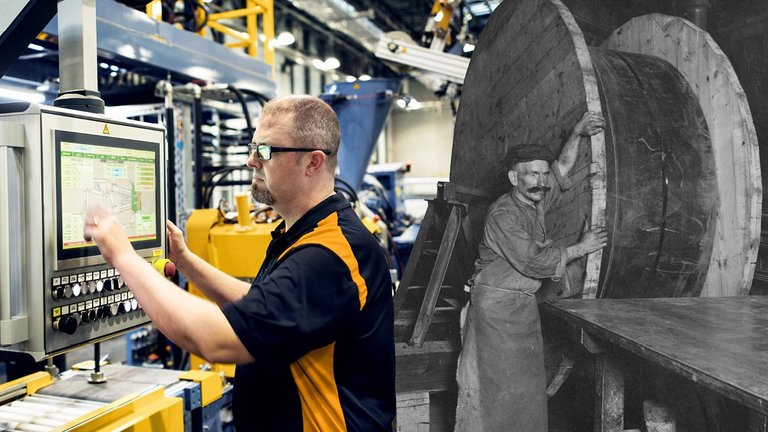Automation – Continental Takes the Next Step Toward Industry 4.0
In the mid-1920s, Continental employed around 14,500 people. Precise manual work was required in many areas of production, such as the manufacture of conveyor belts. At the Vahrenwald plant, many production steps were carried out by people rather than machines.
Although production chains have undergone fundamental change over the course of time, employees continue to play a crucial role in the company's success. Numerous systems at Continental are now automated, but people are still needed to monitor these processes. The tire manufacturer also continues to relies on manual work to a certain extent. Racing bike tires, for example, are still produced by hand.

